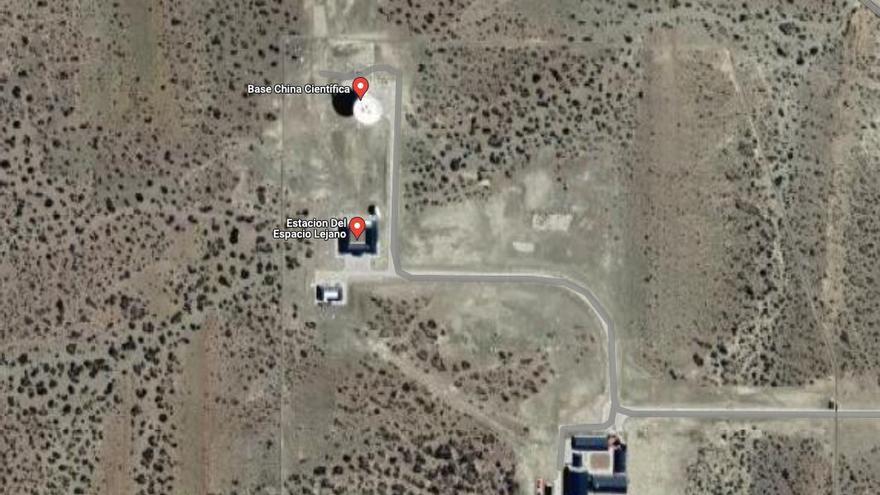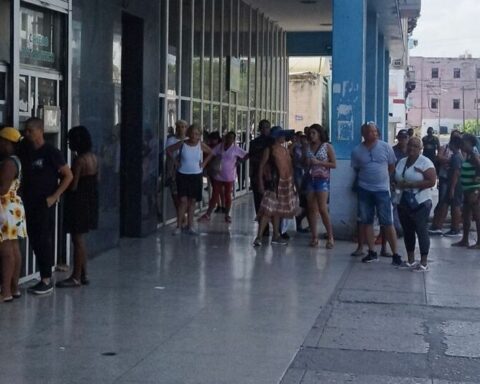A formidable 35-meter-diameter antenna, operated by the Chinese army, was installed in the middle of the Argentine pampa in 2017. Near the Nicaraguan Nejapa lagoon, hidden by vegetation, a Russian satellite dish has been monitoring space since that same year. The information that an electronic espionage basewith money from Beijing, could be built shortly in Cuba, added another note to the political tension between the world powers and reminds one of the most tense episodes of the Cold War.
The question – asked this Friday by the American newspaper The Wall Street Journal (WSJ), which revealed the existence of the project, is what consequences this collaboration in the field of counterintelligence will have for Havana and Beijing, and what measures the White House will take in this regard.
In its editorial commenting on the Joe Biden Administration’s reaction to the possibility of building a Chinese base – with the capacity to monitor military installations in South Florida and maritime traffic to the North of the Caribbean – the WSJ is not optimistic: the The president has maintained a position of rapprochement with Beijing, to which the Asian giant has not only been surly, but has responded with hostility.
China has remained silent, while the Cuban Foreign Ministry denounced the text of the WSJ, of which it affirmed that it was a “slander” that Cuba would receive billions of dollars
“President Xi and his comrades claim to have been provoked by the US military presence in the Pacific or by its friendship with Taiwan, but this is just an excuse to carry out their plans to replace the Western world order with their authoritarian model. “, argued the WSJ.
Although John Kirby, a spokesman for the White House National Security Council, called the newspaper’s report “inaccurate,” he also said his government was concerned about “China’s influence around the world, even more so in this hemisphere and in this region”. Both the White House and the Pentagon admitted that Beijing was investing in Latin America and the Caribbean to create infrastructure “that may have military purposes.”
For its part, China has remained silent, while the Cuban Foreign Ministry reviled the text of the WSJ, of which he affirmed that it was a “slander” that Cuba would receive billions of dollars for consenting to the presence of a Chinese military base.
Everything seems to indicate that, if built, the Chinese enclave on the island will function in a similar way to the Far Space Station located in Argentina, whose existence the American newspaper recalls. The 2010 agreement that allowed the installation carried the signatures of then-president Cristina Fernández de Kirchner and Xi Jinping.
The deal included the transfer of 200 hectares of Argentine territory to China for 50 years, and the arrival of numerous investments from the Asian giant. In October 2017, the base was already fully operational.
Although the pretext was to support China’s space race and favor “moon exploration”, the controversy over the potential of its technology in the field of espionage was not long in coming. In addition, the fact that it was operated by the Chinese military raised the suspicions of Fernández’s opponents. However, Mauricio Macri’s coming to power in 2015 did not entail the withdrawal of the base, but merely a modification of the plan to emphasize its use “for peaceful” and not military purposes.
The Russian station in Nejapa, southwest of Managua, has similar characteristics to the one built in Argentina. It is a base of the Global Navigation Satellite System (Glonass) – the Russian equivalent of GPS – whose creation is due to an agreement between Daniel Ortega and Vladimir Putin.
The name of the station, Chaika, is a tribute to Valentina Tereshkova, the first woman to travel to space, in 1963. The inhabitants of the area, interviewed by the British channel BBCThey have alluded to the secrecy of its operation and the possibility that Chaika is the epicenter of Russian espionage in Central America. According to the Russian government, there are four other bases in Brazil, three in Antarctica and one in South Africa.
Mauricio Macri’s coming to power in 2015 did not entail the withdrawal of the base, but merely a modification of the plan to emphasize its use “for peaceful” and not military purposes.
The ambitions of China and Russia “are not limited to the Pacific,” summarizes the WSJ. The give and take of the Cold War, which also had its climactic moment in Cuba –during the Missile Crisis, in 1962– threatens to return, contradicting what, in 2016, Barack Obama declared in Havana about the “last vestiges “of the conflict.
Regarding the similarities between the current tension with China and the events of October 1962, the WSJ also publishes this Friday an article signed by José de Córdoba that recalls the secret military installations of the Soviet Union in the Caribbean. The text notes that, once again, the “financial despair” of the Island and the urgency of China and Russia to seek allies near the United States could get out of control, triggering a conflict that, in the 21st century, would obey rules very different.
The newspaper’s suggestion to Biden? Strengthen its military position in the Pacific with more ships and troops, change diplomatic focus, and show a coherent response to the danger posed by China’s growing power in the Western Hemisphere. What does seem certain is that Cuba, as happened in the distant 1962, will be able to contribute very little to the discussion.
________________________
Collaborate with our work:
The team of 14ymedio He is committed to doing serious journalism that reflects the reality of deep Cuba. Thank you for accompanying us on this long road. We invite you to continue supporting us, but this time becoming a member of our newspaper. Together we can continue transforming journalism in Cuba.







